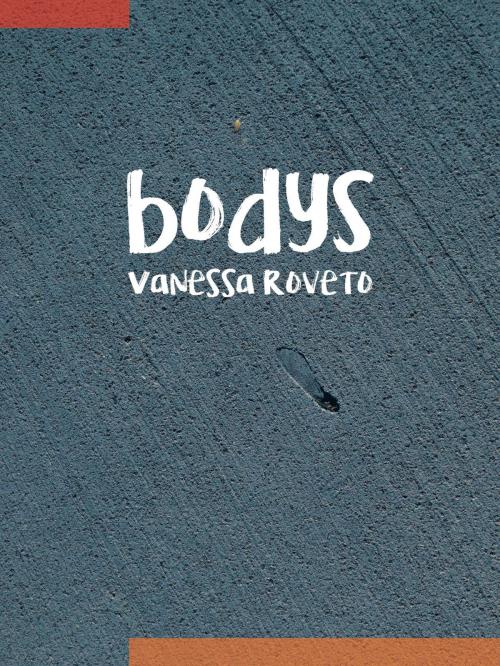| Author: | Vanessa Roveto | ISBN: | 9781609384562 |
| Publisher: | University of Iowa Press | Publication: | November 1, 2016 |
| Imprint: | University Of Iowa Press | Language: | English |
| Author: | Vanessa Roveto |
| ISBN: | 9781609384562 |
| Publisher: | University of Iowa Press |
| Publication: | November 1, 2016 |
| Imprint: | University Of Iowa Press |
| Language: | English |
Vanessa Roveto’s debut collection, bodys, is a work of stunning strangeness, force, and audacity, generated by—and degenerating toward—the unanswerable question at the heart of poetic speech: What does it mean to be “a person?” A dizzying hybrid of poetry and prose, post-human analytics and ribaldry, spiritual autobiography, and grim satire, Roveto lends exacting voice to “a most complicated vocabulary of feeling-your-feelings.” Viscerally drawn to forbidden states and suspicious of its own desires, bodys is literature as high-risk, low-tech radiology, mapping the dim edges of identity and identification: “Brain scans indicated the moral center and the disgust center overlap on the mind field.”
Roveto’s sentences hurtle forward with withering disjunctive energy, laying down traps of wordplay, tacking toward and veering away from syntactical targets, trying-on and sloughing-off pronoun positions with abandon. Yet for all its postmodern bravado—and irreverence, and frequent scary hilarity—bodys remains abidingly attached to exploring the problem of a human speaker addressing itself to another, and colliding with its own otherness along the way. It is the same problem—articulation as disarticulation—that animates the great Renaissance sonnet sequences, from which bodys is affectionately, and perversely, descended. What is bodys—what are bodys—anyway? A dysfunction in the body’s ability to multiply itself? A dysmorphic take on the body’s sense of its reality? A dystopian vision of a world in which boundaries between selves and others have been overwhelmed by commerce, surveillance, medical technology, nihilistic agitprop? “Last night one of the girls asked about the relationship between a body and nobody,” Roveto writes. “It was the beautiful question.”
Vanessa Roveto’s debut collection, bodys, is a work of stunning strangeness, force, and audacity, generated by—and degenerating toward—the unanswerable question at the heart of poetic speech: What does it mean to be “a person?” A dizzying hybrid of poetry and prose, post-human analytics and ribaldry, spiritual autobiography, and grim satire, Roveto lends exacting voice to “a most complicated vocabulary of feeling-your-feelings.” Viscerally drawn to forbidden states and suspicious of its own desires, bodys is literature as high-risk, low-tech radiology, mapping the dim edges of identity and identification: “Brain scans indicated the moral center and the disgust center overlap on the mind field.”
Roveto’s sentences hurtle forward with withering disjunctive energy, laying down traps of wordplay, tacking toward and veering away from syntactical targets, trying-on and sloughing-off pronoun positions with abandon. Yet for all its postmodern bravado—and irreverence, and frequent scary hilarity—bodys remains abidingly attached to exploring the problem of a human speaker addressing itself to another, and colliding with its own otherness along the way. It is the same problem—articulation as disarticulation—that animates the great Renaissance sonnet sequences, from which bodys is affectionately, and perversely, descended. What is bodys—what are bodys—anyway? A dysfunction in the body’s ability to multiply itself? A dysmorphic take on the body’s sense of its reality? A dystopian vision of a world in which boundaries between selves and others have been overwhelmed by commerce, surveillance, medical technology, nihilistic agitprop? “Last night one of the girls asked about the relationship between a body and nobody,” Roveto writes. “It was the beautiful question.”















